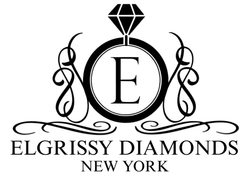Choosing an engagement ring is a significant milestone, symbolizing love and commitment. However, for individuals with sensitive or allergy-prone skin, this joyful process can become a source of concern. Studies indicate that approximately 10-15% of people experience allergic reactions to certain metals, with nickel being the most common allergen. These reactions can manifest as contact dermatitis, leading to redness, itching, and discomfort—hardly the emotions one wishes to associate with such a sentimental piece of jewelry.
The prevalence of metal allergies has grown alongside the popularity of mass-produced jewelry, which often incorporates inexpensive alloys to reduce costs. Nickel, for instance, is commonly used in white gold and other metal mixtures but can trigger adverse skin reactions in susceptible individuals. According to a 2024 study published in Dermatitis: Contact, Atopic, Occupational, Drug, over 15% of women and 5% of men in North America exhibit sensitivity to nickel, underscoring the need for thoughtful jewelry choices.
Beyond nickel, other metals such as copper and zinc, often found in alloys, can also irritate the skin, particularly when exposed to moisture or sweat. For people with sensitive skin, wearing rings that contain these metals daily can exacerbate symptoms, turning a meaningful accessory into an ongoing irritant.
Common Causes of Allergic Reactions to Jewelry
For individuals with sensitive skin, identifying the root causes of allergic reactions to jewelry is crucial. The materials used in crafting engagement rings play a significant role in determining whether the piece will be comfortable to wear over the long term.
Nickel Allergies: The Leading Culprit
Nickel is one of the most common allergens found in jewelry. It’s often used in alloys to increase durability and reduce costs. However, studies published in The Journal of the American Academy of Dermatology estimate that nickel sensitivity affects around 18% of people in industrialized nations. In Europe, stricter regulations have limited the amount of nickel in consumer goods, reducing cases of contact dermatitis. Unfortunately, similar regulations are less widespread in other parts of the world.
When nickel-containing rings come into prolonged contact with skin, the metal can release ions, particularly in moist conditions, such as during sweating or hand washing. These ions penetrate the skin, triggering an immune response in allergic individuals. Symptoms can include itching, redness, swelling, and in severe cases, blistering.
Other Metal Sensitivities
While nickel is the most notorious allergen, other metals can also cause reactions:
-
Copper and Brass: Commonly used in lower-cost jewelry or as part of gold and silver alloys, these metals can cause skin irritation, particularly for those with heightened sensitivity.
-
Zinc: Although less common, some individuals may experience allergic reactions to zinc, especially when used in jewelry that undergoes heavy wear.
The Role of Metal Coatings and Plating
Some engagement rings are coated with rhodium or other hypoallergenic materials to provide a skin-safe barrier. However, this solution is not always permanent. Over time, coatings may wear off, exposing the base metals underneath, which can lead to irritation. This highlights the importance of choosing hypoallergenic materials throughout the ring rather than relying solely on surface treatments.
Hypoallergenic Metals Suitable for Engagement Rings
For individuals with sensitive skin, selecting the right materials is essential. Here are some of the top hypoallergenic options:
Platinum: The Ultimate Hypoallergenic Metal
Platinum is celebrated for its purity and hypoallergenic properties. Containing 90-95% pure platinum, this metal rarely causes allergic reactions. Its dense structure and natural resistance to tarnish make it an ideal choice for everyday wear. Additionally, platinum’s durability ensures that it retains its beauty over decades, even under frequent use.
Palladium: A Lightweight Alternative
Palladium, part of the platinum family, offers similar hypoallergenic benefits with a lighter weight. It is also highly resistant to corrosion and tarnish, making it a practical choice for sensitive skin. As a bonus, palladium’s naturally bright white color eliminates the need for rhodium plating, ensuring consistent hypoallergenic properties.
High-Karat Gold: A Safer Option
Gold in its pure form (24-karat) is hypoallergenic, but it is too soft for practical use in jewelry. However, 18-karat gold, which contains a higher percentage of pure gold and fewer alloyed metals, is a good compromise for sensitive skin. Choosing alloys mixed with palladium or silver, rather than nickel, can further enhance its skin-friendly properties.
Titanium: Lightweight and Biocompatible
Titanium is not only hypoallergenic but also exceptionally strong and lightweight. Commonly used in medical implants due to its biocompatibility, titanium is an excellent choice for those with severe metal allergies. Its modern, sleek appearance makes it a popular choice for contemporary engagement ring designs.
Tantalum: A Unique and Skin-Friendly Option
Tantalum is a lesser-known metal in the jewelry world, but it is gaining popularity due to its hypoallergenic properties and distinctive dark gray color. Resistant to corrosion and highly durable, tantalum offers a unique alternative for those seeking something non-traditional.
Metals to Approach with Caution
While some metals are renowned for their hypoallergenic properties, others require caution due to their potential to cause allergic reactions. Understanding these metals can help individuals make informed decisions when selecting an engagement ring.
White Gold: A Double-Edged Sword
White gold is a popular choice for engagement rings due to its sleek, modern appearance. However, traditional white gold alloys often contain nickel, which, as mentioned earlier, is a leading cause of allergic reactions. To counter this, many white gold rings are plated with rhodium, a hypoallergenic metal that enhances the ring’s brightness and provides a protective barrier.
Unfortunately, rhodium plating is not permanent and may wear off over time, exposing the underlying nickel alloy. Regular maintenance and replating can help mitigate this issue, but for those with severe sensitivities, alternative metals like platinum or palladium are safer choices.
Sterling Silver: A Potential Irritant
Sterling silver, an alloy made of 92.5% silver and 7.5% other metals (often copper), is another common option in jewelry. While silver itself is hypoallergenic, the alloyed metals can cause irritation, particularly in those with metal sensitivities. Additionally, sterling silver is prone to tarnishing, which can exacerbate skin irritation if the tarnish comes into contact with the skin.
Design Considerations for Sensitive Skin
Even with hypoallergenic metals, the design of an engagement ring can influence its comfort for those with sensitive skin. Here are key design aspects to consider:
Avoiding Plated Jewelry
As previously mentioned, plated jewelry can pose a problem for sensitive skin due to the eventual exposure of base metals. When choosing an engagement ring, prioritize solid hypoallergenic metals over plated options to ensure long-term comfort and durability.
Smooth and Simple Designs
Intricate designs with crevices or sharp edges can trap dirt, soap, and moisture, potentially irritating the skin. Opting for smooth, minimalist designs not only enhances the ring's aesthetic appeal but also reduces the risk of skin irritation.
Proper Fit and Sizing
A well-fitting ring is essential for individuals with sensitive skin. Rings that are too tight can cause chafing, trapping moisture and allergens against the skin. Conversely, loose rings may move excessively, leading to friction and irritation. Consulting a professional jeweler to ensure a perfect fit is a critical step.
Maintenance and Care Tips
Proper maintenance is vital for keeping an engagement ring both beautiful and skin-friendly. Regular cleaning and care can help prevent irritation caused by external factors like dirt or chemicals.
Regular Cleaning
Clean your ring regularly to remove accumulated dirt, sweat, and soap residue, all of which can irritate sensitive skin. Use a gentle, non-abrasive jewelry cleaner or a mild soap solution to keep the ring clean without damaging the metal.
Professional Inspections
Periodic inspections by a professional jeweler can help identify wear and tear, particularly in plated rings or settings with intricate designs. These inspections ensure the ring maintains its hypoallergenic properties and structural integrity over time.
Customization Options at Elgrissy Diamonds
Elgrissy Diamonds specializes in creating exquisite engagement rings tailored to individual needs, including those with sensitive skin. Their expertise in hypoallergenic materials and custom design ensures every client can find a ring that combines beauty, comfort, and practicality.
Personalized Consultations
Elgrissy Diamonds offers personalized consultations to help clients select the perfect hypoallergenic metal and design. Whether you prefer the timeless elegance of platinum or the modern appeal of titanium, their experts can guide you through the options.
Exclusive Hypoallergenic Collection
With a curated selection of rings crafted from hypoallergenic metals, Elgrissy Diamonds prioritizes comfort without compromising on style. Their designs cater to various tastes, from classic to contemporary, ensuring every client finds their dream ring.
Custom Design Services
For those seeking a truly unique piece, Elgrissy Diamonds provides custom design services. Clients can collaborate with skilled artisans to create a one-of-a-kind engagement ring that reflects their personal style while meeting their skin sensitivities.
Selecting an engagement ring for sensitive skin requires careful consideration of materials, design, and maintenance. By choosing hypoallergenic metals such as platinum, palladium, or titanium, and prioritizing smooth, well-fitted designs, couples can ensure their symbol of love is as comfortable as it is beautiful. With expert guidance and tailored options from Elgrissy Diamonds, finding the perfect ring has never been easier. Prioritize both comfort and elegance to create a timeless piece that celebrates your commitment without compromise.







